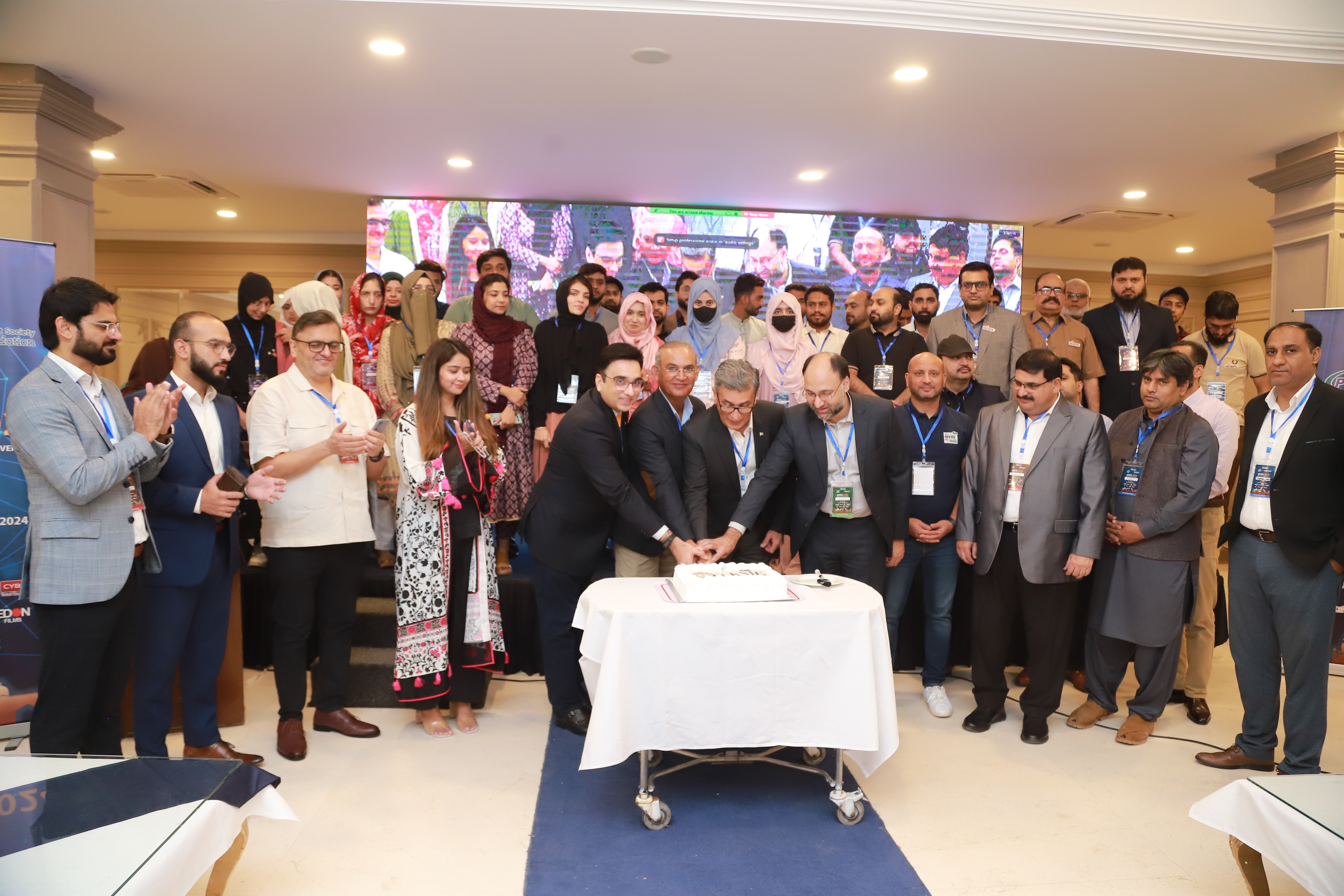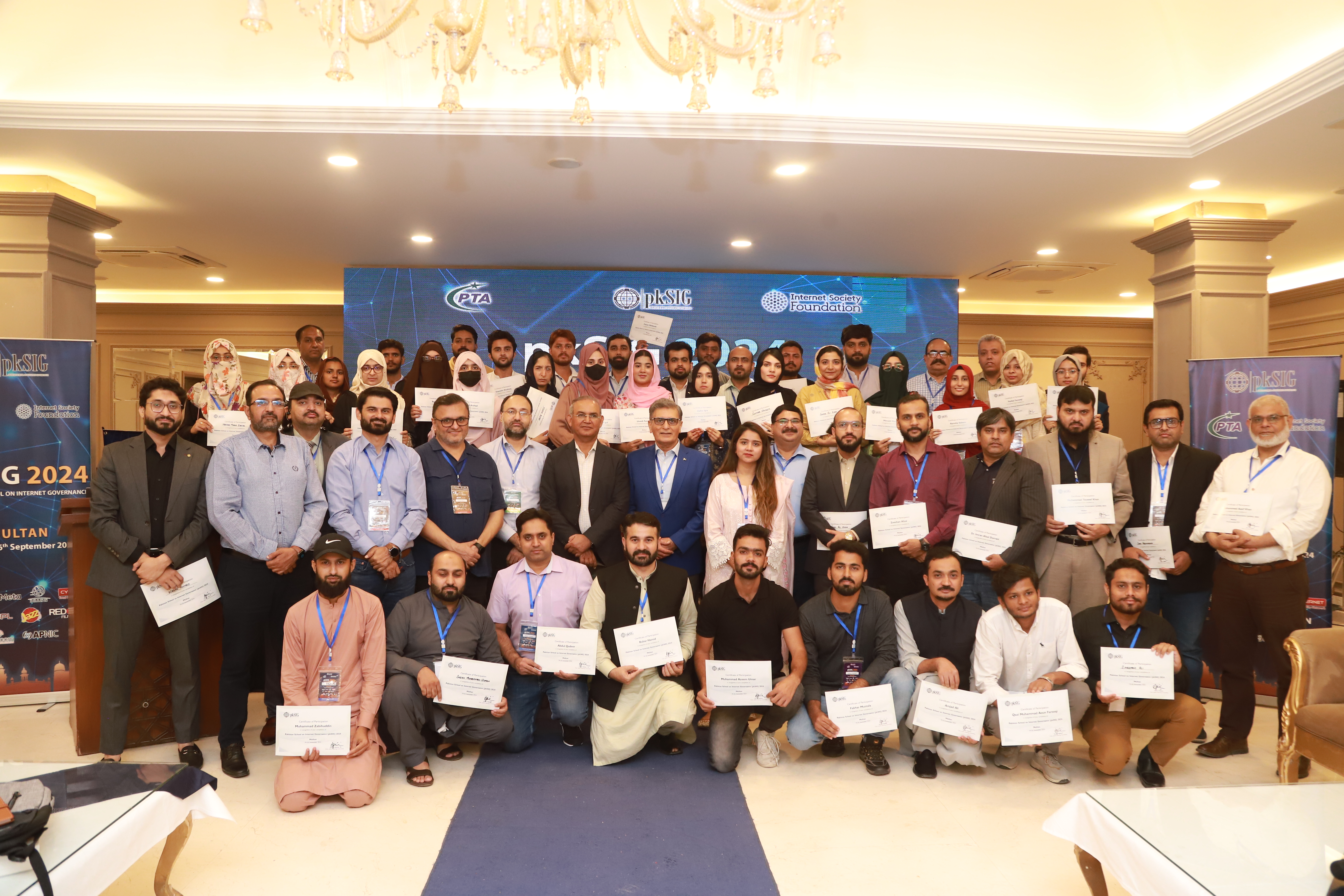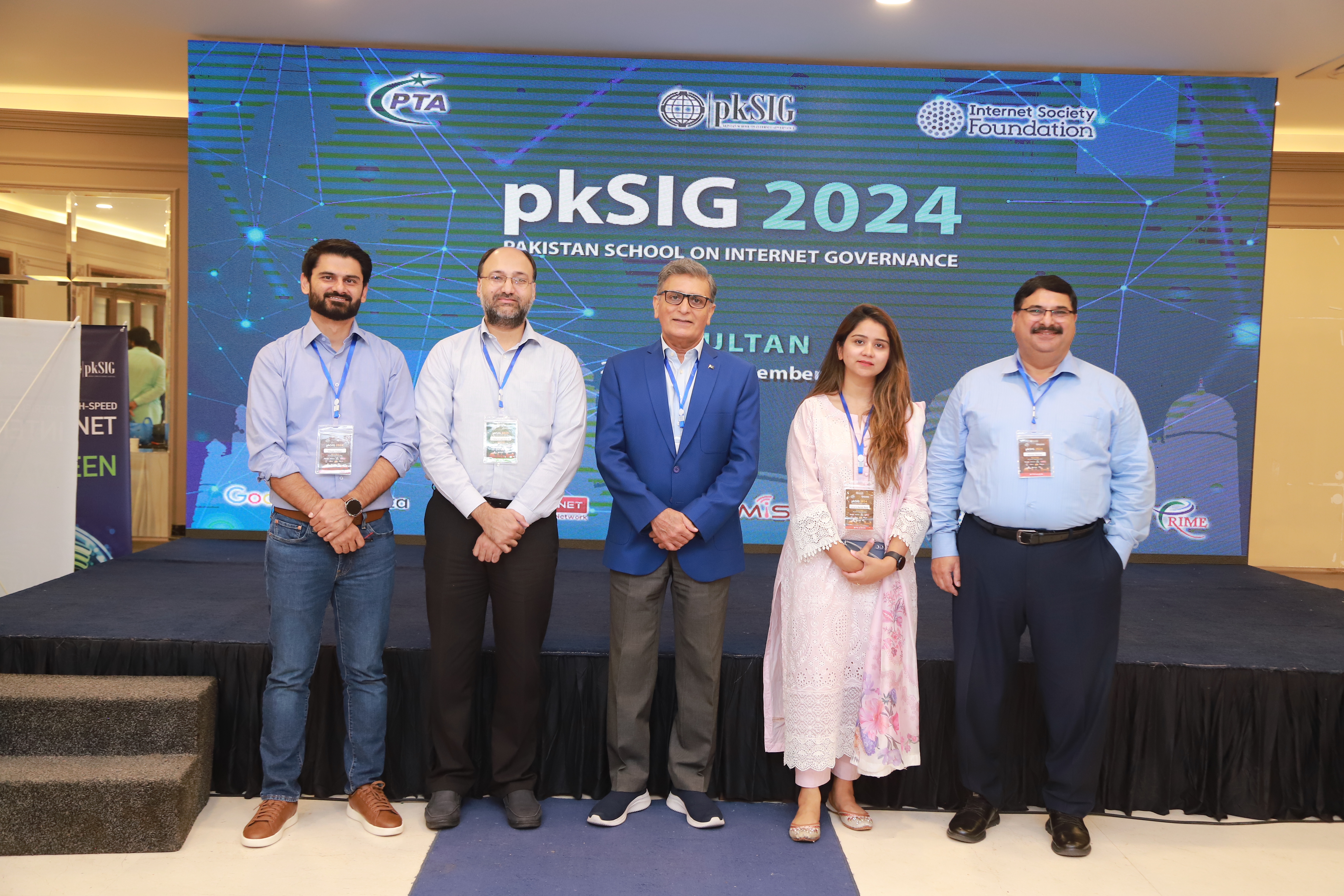This post was written by Waqas Hassan, GDIP Regional Lead for Asia.
GDIP Regional Lead for Asia Waqas Hassan, concurrently the Vice-Chair of the Asia Pacific School on Internet Governance (APSIG) and Program Chair of the Pakistan School on Internet Governance (pkSIG), shares insights on the evolution of internet in Pakistan over the past ten years.
When I assumed the role of Regional Lead for Asia at GDIP back in June of this year and looked ahead at how we drive progress to enable a fairer and more inclusive digital economy across the Asia Pacific region and beyond, it felt timely to reflect on Pakistan’s digital journey so far.
Looking back at the evolution of the internet in Pakistan, many milestones have been achieved, though a standout moment for me was the introduction of 3G and 4G LTE services in 2014. From there on, internet access and adoption spiked, with broadband subscribers dramatically increasing from just 2% in 2014 to 57% today, facilitated by the influx of affordable smartphones delivering rich content over high-speed broadband, creating thousands of jobs for citizens.

The country experienced an ‘internet boom’ around 2014, and a group of like-minded visionaries realized the need to strengthen local communities’ understanding of the internet and its policy environment to prepare and empower the next generation of global internet leaders in Pakistan.
The very next year, the Pakistan School on Internet Governance (pkSIG) — the first in the Asia Pacific region — was established. The initiative was led by former Vice-Chancellor of the National Textile University, Dr Arshad Ali, hosted by the Higher Education Commission and supported by the Ministry of IT, Pakistan Telecommunication Authority (PTA), Internet Society (ISOC), Asia-Pacific Network Information Center (APNIC), and Internet Corporation for Assigned Names and Numbers (ICANN).

Initially, pkSIG inducted 36 students from different backgrounds and affiliations, taught by national and international experts. Today, ten years later, the school has trained roughly 350 students in the ten editions held so far. One of the unique features of pkSIG is its commitment to diversity and inclusion. To fulfil this commitment, pkSIG travels to a different city in Pakistan each year to ensure that both women and persons with disabilities are prioritized and able to access training. The school had an overall 26% female participation rate, which may seem low, yet it aligns with the stark reality that Pakistan has one of the widest gender digital divides in the world.
The Pakistan School of Internet Governance’s capacity-building efforts over the years
- 2015 – Higher Education Commission, Islamabad
- 2016 – Virtual University, Lahore
- 2017 – Khyber Pakhtunkhwa IT Board, Peshawar
- 2018 – Regent Plaza, Karachi
- 2019 – National Incubation Center, Quetta
- 2021 – Virtual due to the pandemic
- 2021 – Virtual due to the pandemic
- 2022 – Pearl Continental Hotel, Muzaffarabad
- 2023 – Ramada Hotel, Gilgit
In 2024, pkSIG ventured into Tier-2 cities, starting with Multan, the “City of Saints,” a 6,000-year-old hub of spirituality, vibrant festivals, and delicious mangoes in the south of Punjab. The school received an overwhelming interest from the community with over 250 applications, out of which 50 were selected, including 11 fellows from the surrounding areas.
The three-day program featured a mix of national and international experts from the Ministry of Information Technology and Telecommunication, PTA, Universal Service Fund (USF), Punjab Information Technology Board (PITB), Federal Investigation Agence (FIA), Telecom Operators, Meta, Google, Tiktok, ICANN, ISOC, and APNIC covering a range of internet governance topics. One of the noteworthy highlights this year was the showcase session, where founders of prominent digital business ventures from Multan — Scentyou.pk, epiccraftings.com, and giftmixservices.com — shared their inspiring journey of success using the internet.
“Access to the internet helped me break barriers in my journey to be financially independent that I believe is the key to gender equality in Pakistan.”
Irum Fida, Gift Mix Founder
As the Regional Lead for Asia at the Global Digital Inclusion Partnership (GDIP), the three-day program was also a great opportunity for me to highlight the realities of the gender digital divide and the transformative impact that the Women in Digital Economy Fund is committed to making across low- and middle-income countries (LMIC).
The remainder of the session I led focused on guiding the students in navigating their way through the internet governance field, using the global and regional fellowships and grants. Each time I have the privilege of conducting these sessions, it encourages me to reflect on my journey with pkSIG, which began as a participant in 2016 and became a speaker and organizer two years later, in 2018.

As we look back at pkSIG’s impact over the last decade, it is clear that the school has not only equipped youth with vital knowledge and skills but has also inspired a generation of internet leaders who are contributing to the regional and global public policy discussions on the future of the internet.
Despite all we have achieved in the last ten years, this is just the beginning. The Pakistan School of Internet Governance will continue to deliver a high-quality curriculum to Pakistan’s youth, empowering them with the insights and perspective needed to navigate and adapt to the evolving internet governance discussions around the world. We remain committed, motivated, and excited for what is to come and the next ten years of pkSIG.
About GDIP
The Global Digital Inclusion Partnership is a coalition of public, private, and civil society organizations working to bring internet connectivity to the global majority and ensure everyone is meaningfully connected by 2030. GDIP advances digital opportunities to empower and support people’s lives and agency, leading to inclusive digital societies.